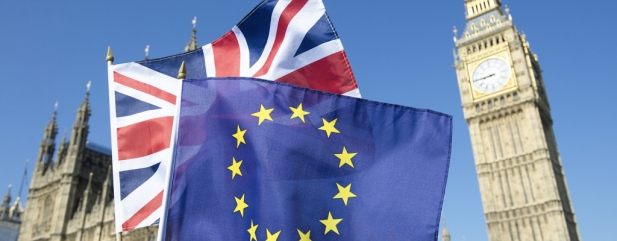Archived article
Please note that tax, investment, pension and ISA rules can change and the information and any views contained in this article may now be inaccurate.
The City state we’re in…

With the omnishambles of Brexit continuing to dominate the front
pages, the Parliamentary recess seems to have come just in time to spare the nation from the chaos taking place in Westminster right in front of our eyes.
Having unveiled a ‘unified’ Chequers plan that served up a smorgasbord of euphemisms for our existing relations with the EU, the combination of ‘common rulebooks’, ‘mobility frameworks’ and ‘facilitated customs’ was indeed successful in unifying both Leavers and Remainers, but in opposition rather than the support Theresa May had hoped to garner.
And so, with less than 150 days until an agreement is required between the UK and EU (of which Parliament will be in session for just 60), the prospect of no deal is one that both voters and investors must seriously begin to prepare for.
In this article we take a look at just what they might be.
• No Brexit
For a No Brexit outcome to arise, we have to assume at least a change of Government, followed by a second referendum. Whether that comes in the guise of a centralist coalition or a Jeremy Corbyn led Labour party would have a major impact on how markets would react.
Of greater significance however could be the potential social unrest to follow as, regardless of whether the ‘will of the people’ had changed, the sense of betrayal amongst the 17m who voted to leave in the original referendum might spill out onto the streets.
While investors may well welcome the no Brexit outcome, democracy and political engagement would mourn long into the future.
• A Deal of Sorts
Whether ‘hard’ or ‘soft’, a deal of any sort agreed in time for the UK Parliament to approve and EU to ratify at the December Council meeting would at least bring to an end the uncertainty that investors currently face. Having roundly rejected the softness of Chequers, any such deal currently seems more likely to be at the hard end of the scale.
With such hardness comes inevitable trade barriers, an increase in duties and a corresponding rise in inflation as tariffs are passed onto consumers. Swiftly following thereafter would be a slowdown in economic activity as trade between the EU and UK came to a shuddering halt whilst administrative processes are put in place.

And that’s before we come to the square peg of the Good Friday Agreement, which declared the UK and Ireland as ‘partners in the EU’ and expressly removed any security installations at the border.
Containing a provision that promises the people of Ireland to facilitate a unification of North and South should the people of Northern Ireland wish it (Northern Ireland voted 56% to remain in the UK), the Good Friday Agreement mixed with Brexit, brings with it the prospect of a break-up of the Union. Given the SNP position on the subject, a constitutional crisis would be almost inevitable thereafter.
• No Deal
As the hardest of exits, the ‘no deal is better than a bad deal’ mantra seems increasingly likely to become a reality as the clock ticks down. In terms of acrimony and consequences, this is perhaps as bad as it could be in the short-term as the UK would become the only developed nation on the planet to have no free or preferential trade deals in place with any of its trading partners.
For businesses engaged in cross-border activity, the imposition of WTO rules (assuming we were allowed to join) would result in a jump in tariffs on a host of goods until such time that new deals could be arranged. These negotiations are typically measured in years, not months.
But just as reaching a deal of sorts creates a potential constitutional crisis, the same can be said for a no deal Brexit. As the heart of the global financial markets, London’s multi-cultural, international focus led to the Capital voting to remain at a rate of three-to-two. Based on the 2011 Census data, inner London boasted a population of over 3.2m of which only 58% identified themselves as British.
With this figure likely to have trended closer to 50% in the seven years since, the prospect of London striking out on its own, as a city state, akin to Singapore or Monaco is one not beyond the realms of possibility.
Responsible for over a third of UK tax receipts, the prospect of a wealthy constituent wishing to untie itself from the rest of the union, taking back control of its own laws, money, borders and trade is one that the UK should be most fearful of in the long run.
Kevin Doran, managing director, AJ Bell Investments

Important information:
These articles are provided by Shares magazine which is published by AJ Bell Media, a part of AJ Bell. Shares is not written by AJ Bell.
Shares is provided for your general information and use and is not a personal recommendation to invest. It is not intended to be relied upon by you in making or not making any investment decisions. The investments referred to in these articles will not be suitable for all investors. If in doubt please seek appropriate independent financial advice.
Investors acting on the information in these articles do so at their own risk and AJ Bell Media and its staff do not accept liability for losses suffered by investors as a result of their investment decisions.
Issue contents
Aequitas
Big News
- Speculation brewing over South Western franchise future amid timetable issues
- BP boosts dividend for first time in four years
- McColl’s warning raises red flags
- British businesses ‘on sale’ as deal flow set to accelerate
- Cloud firm UKFast fires the stock market starting gun
- What bumper US growth means for funds, stocks and currencies

 magazine
magazine








